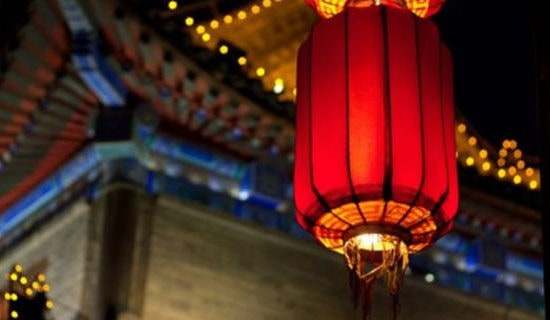英語春節(jié)手抄報
春節(jié)是指漢字文化圈傳統(tǒng)上的農歷新年,俗稱“年節(jié)”,傳統(tǒng)名稱為新年、大年、新歲,但口頭上又稱度歲、慶新歲、過年。下面我們來看一下英語的相關介紹吧。

英語春節(jié)手抄報
中國春節(jié)的來歷 The Origin of Chinese New Year
The Chinese New Year is now popularly known as the Spring Festival because it starts from the Begining of Spring (the first of the twenty-four terms in coodination with the changes of Nature). Its origin is too old to be traced. Several explanations are hanging around. All agree, however, that the word Nian, which in modern Chinese solely means "year", was originally the name of a monster beast that started to prey on people the night before the beginning of a new year.
One legend goes that the beast Nian had a very big mouth that would swallow a great many people with one bite. People were very scared. One day, an old man came to their rescue, offering to subdue Nian. To Nian he said, "I hear say that you are very capable, but can you swallow the other beasts of prey on earth instead of people who are by no means of your worthy opponents?" So, it did swallow many of the beasts of prey on earth that also harrassed people and their domestic animals from time to time.
After that, the old man disappeared riding the beast Nian. He turned out to be an immortal god. Now that Nian is gone and other beasts of prey are also scared into forests, people begin to enjoy their peaceful life. Before the old man left, he had told people to put up red paper decorations on their windows and doors at each years end to scare away Nian in case it sneaked back again, because red is the color the beast feared the most.
From then on, the tradition of observing the conquest of Nian is carried on from generation to generation. The term "Guo Nian", which may mean "Survive the Nian" becomes today "Celebrate the (New) Year" as the word "guo" in Chinese having both the meaning of "pass-over" and "observe". The custom of putting up red paper and firing fire-crackers to scare away Nian should it have a chance to run loose is still around. However, people today have long forgotten why they are doing all this, except that they feel the color and the sound add to the excitement of the celebration.
春節(jié)英語手抄報內容
Title: The Spring Festival - A Time of Joy and Renewal
Introduction:
The Spring Festival, also known as Chinese New Year or Lunar New Year, is the most important traditional festival in China. It marks the beginning of a new year on the lunar calendar and is celebrated with great enthusiasm and joy by people all over the world.
History and Legends:
The origins of the Spring Festival can be traced back to ancient times. According to legend, there was a kind-hearted monster named Nian who would come out on the eve of the new year to harm people and livestock. To protect themselves, people would decorate their homes with red couplets and set off firecrackers to scare away Nian. Eventually, Nian was defeated, and the tradition of celebrating the Spring Festival became a way to commemorate this victory.
Customs and Traditions:
1. Cleaning and Decorations: People clean their homes thoroughly to sweep away bad luck and make way for good fortune. Red decorations, such as couplets and lanterns, are hung to bring good luck and happiness.
2. Reunion Dinner: Family members gather together for a feast on New Years Eve, sharing dishes with symbolic meanings like fish (representing abundance) and dumplings (symbolizing wealth).
3. Red Envelopes: Elders give red envelopes containing money, called "hongbao," to children and unmarried adults as a blessing for the new year.
4. Fireworks and Firecrackers: These are set off to scare away evil spirits and bring good luck for the coming year.
5. Paying Visits: During the festival, people visit relatives and friends to exchange greetings and well-wishes for the new year.
6. Lantern Festival: The final day of the Spring Festival celebrations, showcasing beautiful lanterns and lion and dragon dances.
Significance:
The Spring Festival is not just about celebrating the new year; its deeply rooted in Chinese culture as a time for family bonding, harmony, and hopeful wishes for the future. Moreover, it serves as a showcase for both traditional Chinese cultural practices and modern developments, drawing global attention.
Conclusion:
The Spring Festival is a time of joy, renewal, and hope. As we celebrate this festival, let us embrace the traditions that have been passed down through generations and look forward to a bright and prosperous new year. Happy Spring Festival!
【英語春節(jié)手抄報】相關文章:
英語春節(jié)的手抄報07-08
春節(jié)節(jié)英語手抄報07-04
英語春節(jié)手抄報內容01-31
漂亮的春節(jié)英語手抄報06-20
春節(jié)英語手抄報資料03-13
春節(jié)手抄報英語的內容01-31
關于春節(jié)的英語手抄報06-19
春節(jié)英語手抄報內容06-19
快樂春節(jié)的英語手抄報07-03